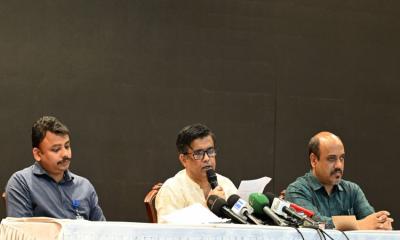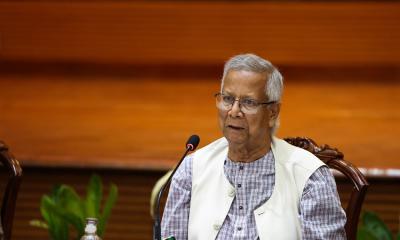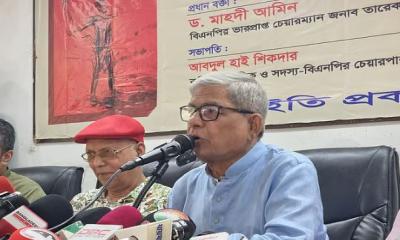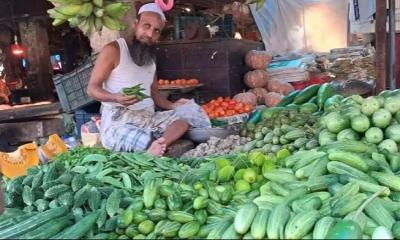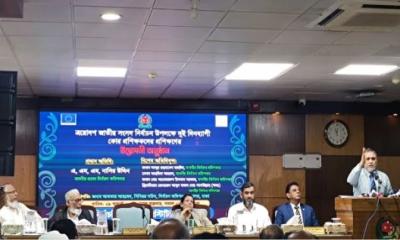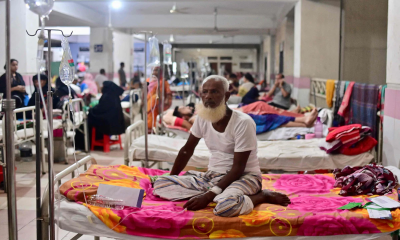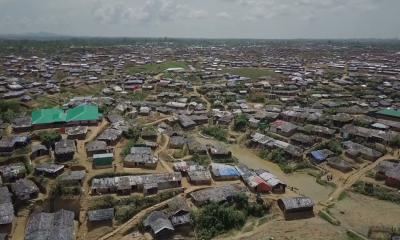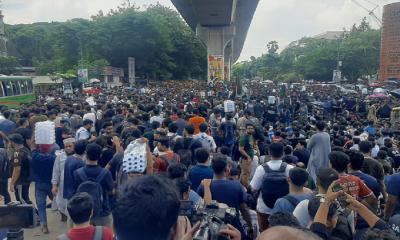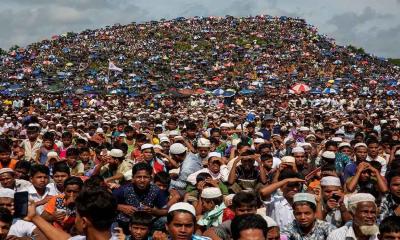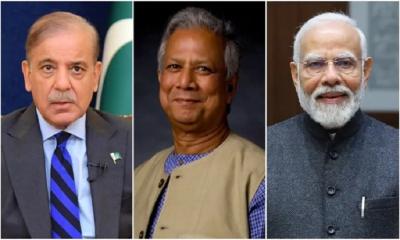A recent survey conducted by Voice of America (VOA) has revealed that many people in Bangladesh feel the country’s interim government is doing a poorer job at controlling inflation compared to the previous Awami League-led government.
The survey, which gathered opinions from 1,000 respondents, found that 44.7% of people believe the interim government is performing worse in controlling prices of essential goods like rice, fish, vegetables, eggs, meat, and oil.
On the other hand, only 23.8% of respondents felt that the interim government is managing inflation better than the previous government. Around 30.8% of those surveyed said the situation is about the same as it was before.
The survey also highlighted a difference in how men and women view the government’s performance on inflation control. Among male respondents, 31.3% believed the interim government was handling inflation better than the last one.
However, only 16.3% of female respondents shared this opinion. A larger number of women, 41.2%, felt that the situation has stayed the same, compared to just 20.3% of men who thought so.
The survey was conducted to reflect Bangladesh’s demographic makeup, with an equal number of men and women.
Most respondents, around 92.7%, were Muslim, and more than half were under the age of 34. About 25% of those surveyed lived in urban areas.
Financial Struggles and Rising Costs
One respondent, Hiren Pandit, a program coordinator at a private organization in Dhaka, spoke about the financial difficulties his family has been facing.
Hiren has two children in university, and while his family had lived comfortably in the past, the rising cost of living in 2024 has put them under severe financial pressure.
“Prices have been increasing so fast that it feels like we can barely breathe,” Hiren told VOA in an interview. “The rent has gone up, and the prices of goods have shot up. Things that used to cost 140 Taka now cost 170 Taka.”
According to data from Bangladesh Bank, inflation was 9.72% in June of this year, but by October, it had risen to 10.87%. During this time, the country went through significant political changes, including a popular movement and the fall of the government.
However, inflation didn’t suddenly spike due to political instability in July, even though that month saw the highest inflation rate of the year, at 11.66%.
Bangladesh Bank’s records show that inflation in the country had remained at 5-6% during 2020 and 2021, but it began to climb significantly from mid-2022, and by 2023, it had crossed the 9% mark, nearing 10%.
Experts attribute this rise in inflation to global factors, particularly the war in Ukraine, which began in February 2022 and caused global energy markets to destabilize, driving up oil prices.
For a country like Bangladesh, which relies heavily on imports, this price increase has hit the economy hard.
The cost of imports went up, the value of the Bangladeshi Taka decreased against the US dollar, foreign reserves dropped, and the country’s ability to afford imports was affected.
After the interim government took power in August, the pressure on prices continued. While inflation slightly decreased in September, it shot back up again in October, almost reaching 11%.
Economists argue that both political events and natural disasters have played a role in this increase.
“The political protests in July and August, which led to the fall of the government, disrupted supply chains, and affected international trade.
This caused shortages inside the country,” explained Golam Moazzem, the Research Director at the Center for Policy Dialogue (CPD). “Moreover, two major floods in different parts of the country have reduced the production of rice, particularly the Aman crop, and other vegetables.”
Moazzem also pointed out that since the fall of the government on August 5, the informal sector and service industries have likely seen negative effects on employment and income. This has led to fewer job opportunities, especially for daily wage earners.
Efforts to Control Prices
After taking office, the interim government has introduced several measures aimed at controlling inflation.
These steps include reducing import duties on key items like rice, potatoes, sugar, oil, and onions.
The government also lowered the margin for Letters of Credit (LCs) on imports, making it easier for businesses to bring goods into the country.
Additionally, the government is closely monitoring markets and keeping an eye on major players in the supply chain.
Pressure on Salaried Workers
Golam Moazzem noted that while the interim government’s data reporting has been more transparent than before, there is nothing fundamentally new in their approach to tackling inflation and supply chain issues.
“These measures are very similar to previous efforts,” Moazzem said. “I haven’t seen anything innovative. I’m quite disappointed because, so far, there have been no dynamic initiatives in managing inflation or improving supply chains.”
The rise in prices is having a significant impact on salaried workers, particularly those on fixed incomes. Hiren Pandit explained that his family used to spend about 60-65% of their monthly income on rent and food. Now, that figure has climbed to 85-90%.
“Everything I earn is spent, and there’s no savings anymore. Life has become almost unbearable for us,” he said.
As prices continue to rise and family incomes remain the same, many middle- and lower-income households are being forced to cut back on both luxury and basic items. Hiren is no exception.
“We used to buy fruits sometimes, but now we can’t afford them. We would have mutton once or twice a month, but now we’ve had to stop that as well,” he explained.
Interest Rate Hike
Since 2022, Bangladesh’s central bank, Bangladesh Bank, has been gradually increasing interest rates to reduce demand and control inflation. At the end of October, the central bank raised interest rates again, bringing them to 10%.
Although the impact of these measures has not yet been seen, Moazzem considers the interest rate hikes to be a positive step. However, he believes that without major reforms in the agricultural supply chain, the core problems will persist.
“There is an oligopoly in Bangladesh’s market structure,” Moazzem explained. “A few suppliers control the entire market and set the prices for raw materials. They decide how much to charge and whom to supply.”
He also emphasized that Bangladesh’s agricultural market is highly “sensitive and political,” meaning that any government intervention in the market can lead to political pressure.
“For this reason, the government often acts quickly to show immediate results. However, reforms in the market for political reasons are unlikely to lead to long-term solutions,” Moazzem said.
One proposal for addressing the market’s issues is to focus on improving the supply chains of five or six key products over the next three years. This would involve regularizing the market, restricting access to registered agents, and digitalizing transactions to allow for better monitoring.
“If these steps are formalized, and if only registered agents are allowed to enter the market, with all transactions being monitored digitally, we will see results,” Moazzem concluded. “However, we will have to wait for those results to materialize.”







